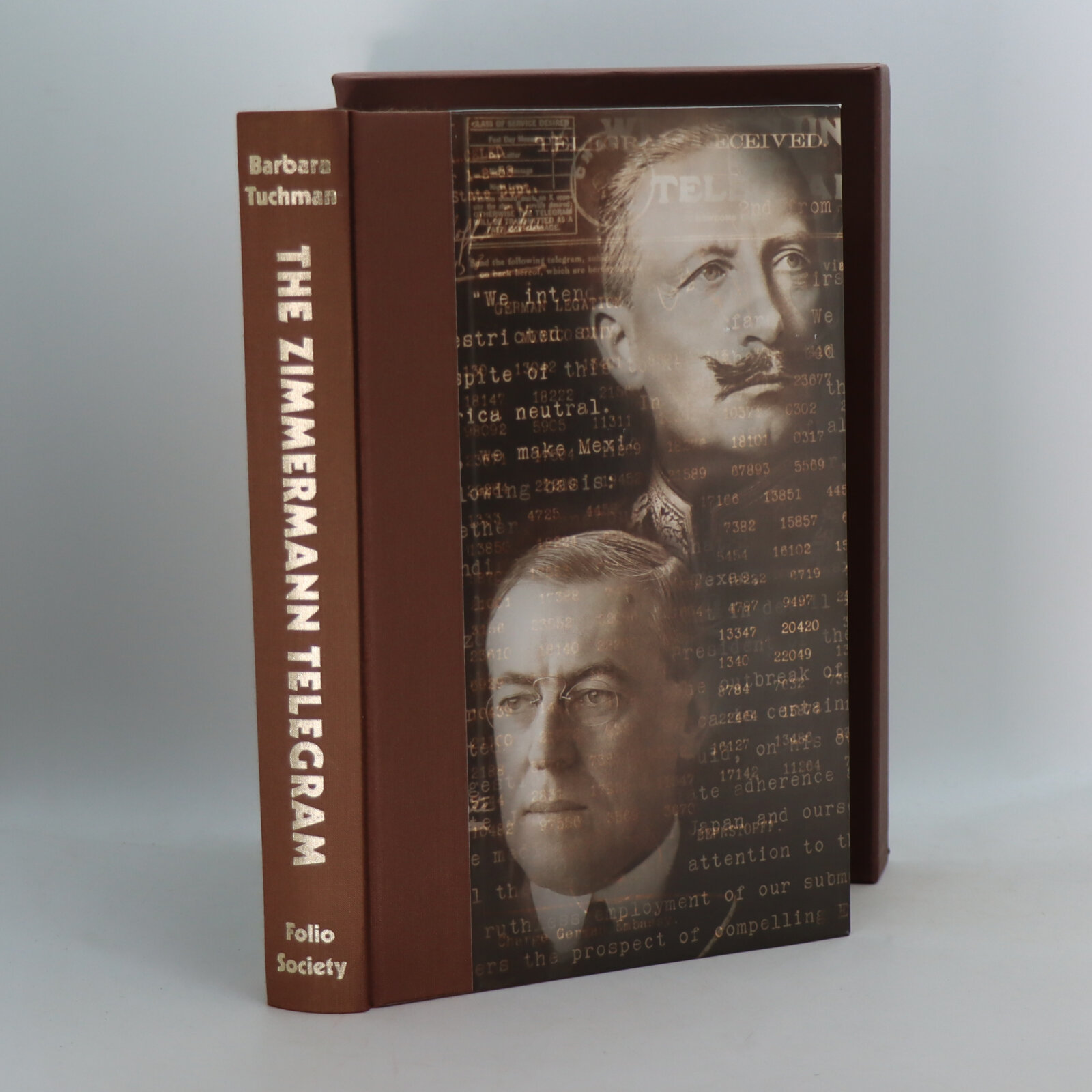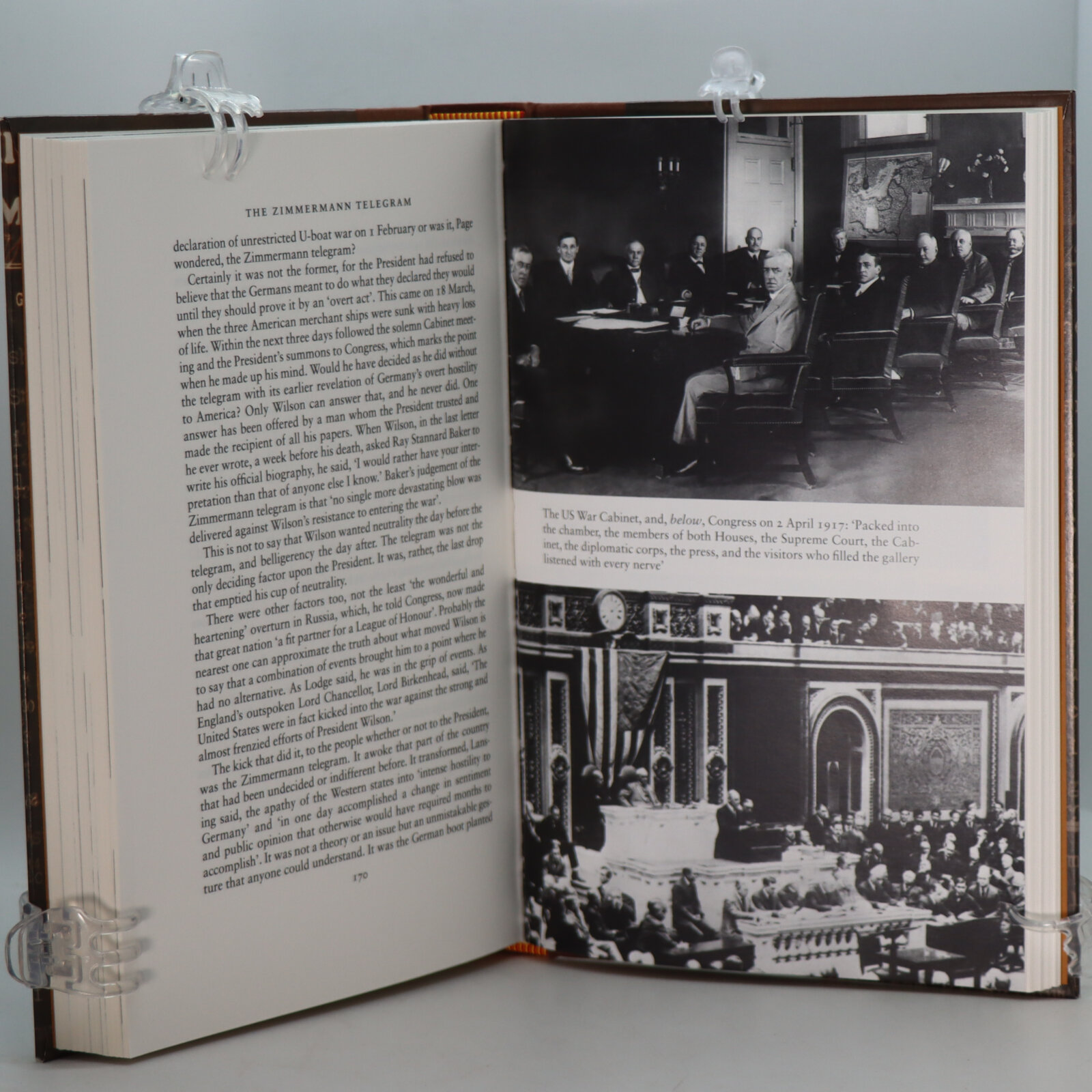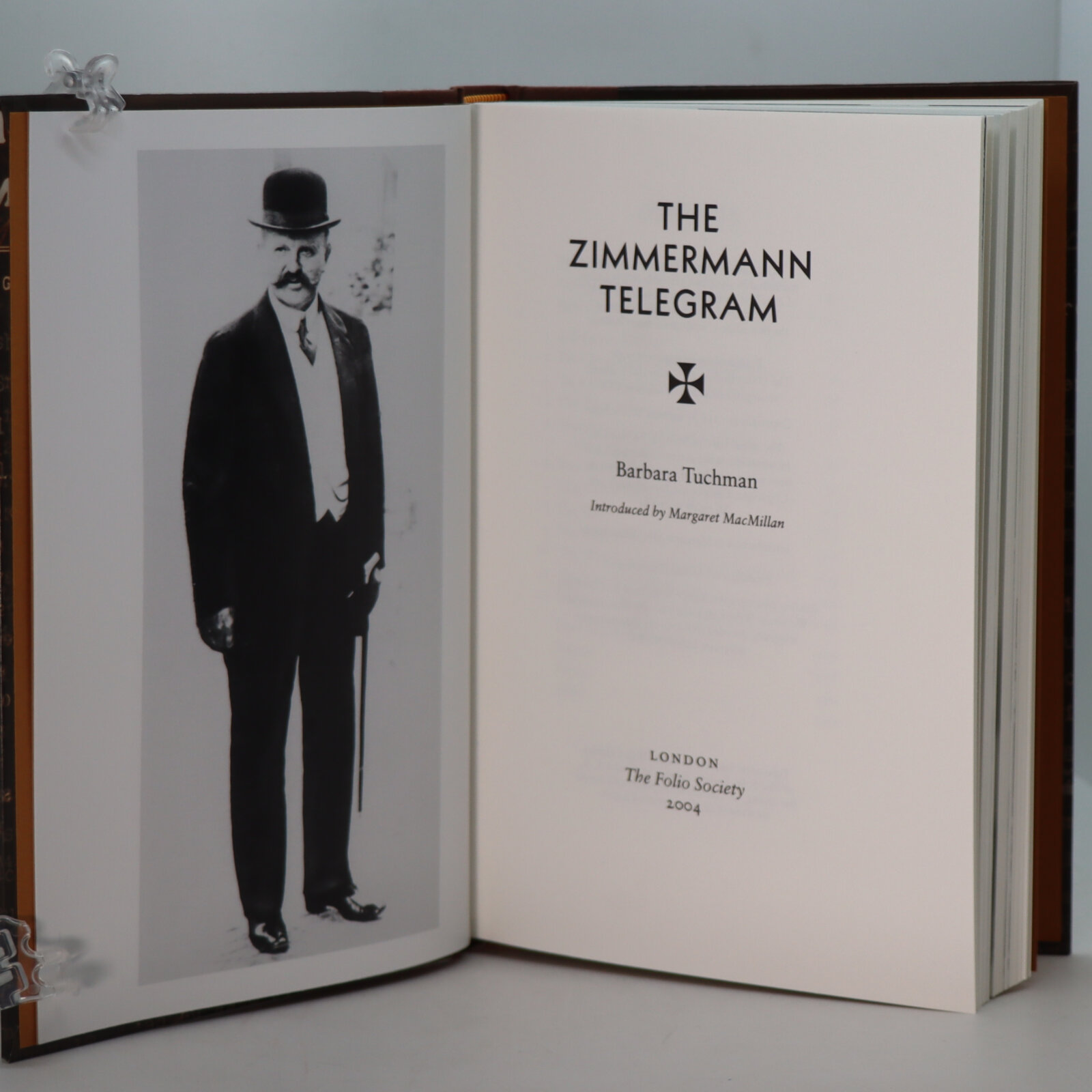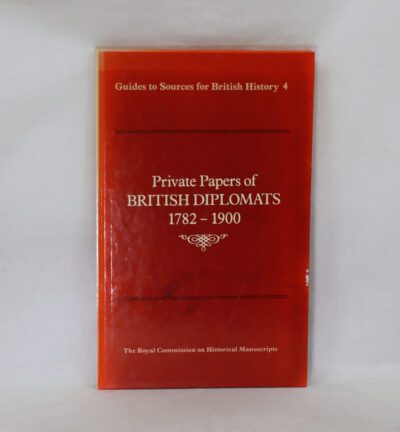The search for your perfect item starts here ...
The Zimmermann Telegram.
By Barbara Tuchman
ISBN: 9780345324252
Printed: 2004
Publisher: The Folio Society. London
| Dimensions | 17 × 25 × 3 cm |
|---|
Language: Not stated
Size (cminches): 17 x 25 x 3
Condition: Fine (See explanation of ratings)
Your items
Item information
Description
In a fitted box. Brown cloth spine with gilt title. Wilhelm II & Zimmermann photos on the boards.
F.B.A. provides an in-depth photographic presentation of this item to stimulate your feeling and touch. More traditional book descriptions are immediately available.
Seldom has a single piece of paper had such far-reaching outcomes as the Zimmermann telegram, sent from Germany to Mexico in 1917 at the time when submarine warfare was the hot issue. The message was an offer by Germany to restore to Mexico the lands in the Southwest U.S. if Mexico would support Germany by attacking the U.S. A month later, the U.S. declared war on Germany, largely as a result of Germany’s refusal to stop its submarine attacks.
The Zimmermann Telegram (or Zimmermann Note or Zimmerman Cable) was a secret diplomatic communication issued from the German Foreign Office in January 1917 that proposed a military alliance between Germany and Mexico if the United States entered World War I against Germany. With Germany’s aid, Mexico would recover Texas, Arizona, and New Mexico. The telegram was intercepted and decoded by British intelligence.
Revelation of the contents enraged Americans, especially after German Foreign Secretary Arthur Zimmermann publicly admitted on March 3 that the telegram was genuine. It helped to generate support for the American declaration of war on Germany in April.
The decryption was described as the most significant intelligence triumph for Britain during World War I, and one of the earliest occasions on which a piece of signal intelligence influenced world events.
The message came in the form of a coded telegram dispatched by Arthur Zimmermann, a Staatssekretär (a top-level civil servant) in the Foreign Office of the German Empire on January 17, 1917. The message was sent to the German ambassador to Mexico, Heinrich von Eckardt. Zimmermann sent the telegram in anticipation of the resumption of unrestricted submarine warfare by Germany on February 1, which the German government presumed would almost certainly lead to war with the United States. The telegram instructed Eckardt that if the United States appeared certain to enter the war, he was to approach the Mexican government with a proposal for military alliance with funding from Germany. The decoded telegram was as follows:
We intend to begin on the first of February unrestricted submarine warfare. We shall endeavour in spite of this to keep the United States of America neutral. In the event of this not succeeding, we make Mexico a proposal of alliance on the following basis: make war together, make peace together, generous financial support and an understanding on our part that Mexico is to reconquer the lost territory in Texas, New Mexico, and Arizona. The settlement in detail is left to you. You will inform the President of the above most secretly as soon as the outbreak of war with the United States of America is certain, and add the suggestion that he should, on his own initiative, invite Japan to immediate adherence and at the same time mediate between Japan and ourselves. Please call the President’s attention to the fact that the ruthless employment of our submarines now offers the prospect of compelling England in a few months to make peace.
Signed, ZIMMERMANN
Want to know more about this item?














